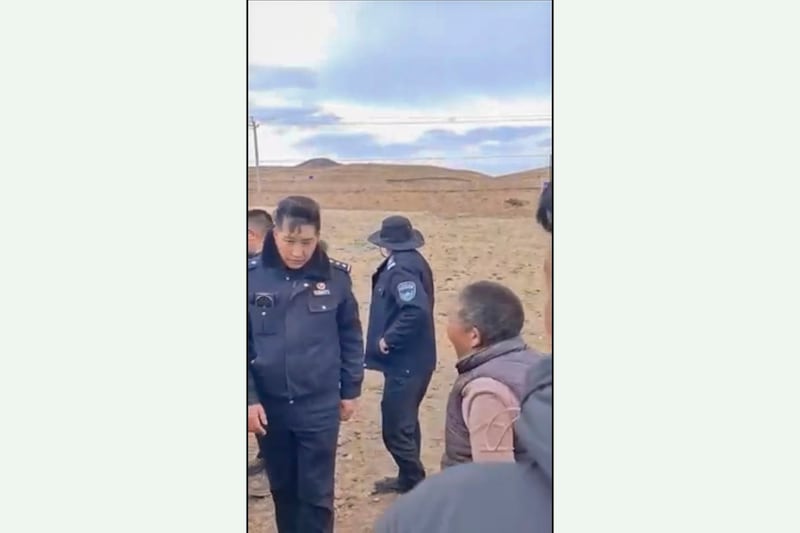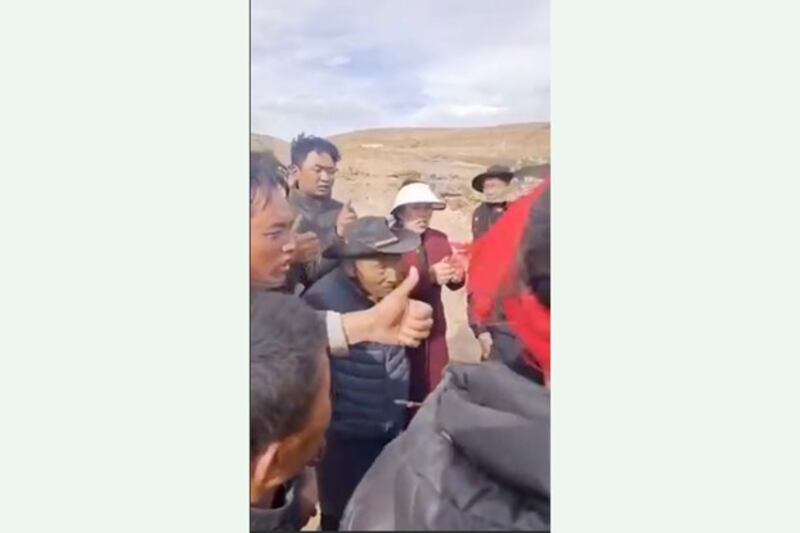Tibetan families whose pasture land was sold to Chinese businessmen without their knowledge or consent say that compensation belatedly offered to them – 3,000 yuan, or about US$415 each – is far too low, sources familiar with the situation told Radio Free Asia.
Four Tibetans who had been arrested April 10 for protesting the land grab in Markham county in Chamdo, or Changdu in Chinese, in the Tibet Autonomous Region, were released, but said they had been beaten while in detention, a source told RFA Tibetan on condition of anonymity for safety reasons.
“The four of them were released on April 16 but they were beaten and tortured during detention, and one of them even has a swollen cheek,” the source said.
Since the protest, about 10 policemen have been deployed to patrol the area day and night, where they closely monitor all activities of the people, sources said.

It’s the latest example of land taken by Chinese authorities in Tibet and in Tibetan-populated areas of nearby Chinese provinces for mining, farming or other use. Local officials routinely use force to subdue those who complain or protest.
Earlier this month, about 25 families were shocked when a Chinese businessman came to clear their land. They were told their land had been sold without their knowledge or any compensation.
After they protested, Chinese officials agreed to pay each family 3,000 yuan, or about US$415, each.
The resident said that the affected families must accept the compensation without protest, and it cannot be negotiated because the amount has been decided by higher authorities.

Other residents said that those who do not comply with the government’s instructions on the matter could face imprisonment.
Authorities conveyed the details of the compensation plan at a meeting on April 16, requiring at least one representative of each of the affected families to attend.
“The people were unhappy about the compensation and rejected the low figure,” said the first source, who explained that the pasture land is being dug out to clear all remaining grass.
Attendees were not allowed to bring their phones to the meeting, where authorities warned the families that it was forbidden to leak any information outside the country and reprimanded them for committing the “crime” of spreading news about the land grab and protesting it.
“They were told that internal problems can only be solved internally,” a second resident said on condition of anonymity to speak freely.
“But if this information had not been widely reported, there wouldn’t have been any talk of compensation, let alone the release of the four young men who were arrested and detained.”
Additional reporting by Dolma Lhamo and edited by Tenzin Pema for RFA Tibetan, and by Malcolm Foster.
